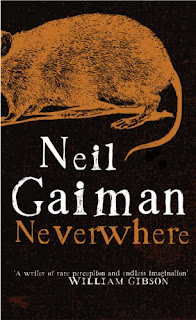The story, which takes place in 1932 in America, is told from the view of Paul Edgecombe a retired prison guard. He speaks of the days when he worked in block E of the Cold Mountain Penitentiary, watching over prisoners who were sentenced to death on the electric chair. The days, when his job was to lead criminals across the Green Mile to their certain death at its end. The story evolves around the case of John Coffey, a prisoner much different from the usual tough-looking psychopaths that end up in one of the cells which line the Green Mile. Sentenced to death for raping and killing two girls, John Coffey has his own secrets to hide. Secrets, that can forever change the lives of his fellow prisoners and his guards on block E.
There is so much I could say about this book, but I am afraid that I would spoil the exciting parts if I revealed too much, as it has so many twists, most of them being quite predictable, some of them extremely unpredictable and surprising.
It took some time for me to get used to the different time this story took place at and after reading so many science fiction and fantasy novels I had to often remind myself that: "no, Coffey isn´t going to turn into a virus-infected vampire" and: "no, Mr. Jingles cannot communicate with people using his mind"... But, although I didn´t expect it, this book had its own type of "magic" and plenty of paranormal aspects. The fact that the story was set in the past made it seem even more real.
And then there is the ending, the most unexpected melancholy ending. I seemed to have forgotten that not every book ends well. Neither can I say that the ending was bad. It was depressing and happy, in that hopeful kind of way, at the same time. With the question: What comes after death? hanging in my mind, I put the book down.
"The Green Mile" is one of those books in which the author pays great attention to characters. Each of them had their own unique way of dealing with problems and it was interesting watching them evolve in the prescence of other characters. Once again, I enjoyed making predictions of what will happen next and how certain characters will react to this. I guess the author managed to develop such realistic characters by just "telling the story as it was (or would be, in this case)": by letting the criminals use the specific language and words criminals would use when speaking, by describing the feelings of Paul as a prison guard would describe them, by adding small details from the daily life of the people that lived in the 20 th century- books, movies, the clothes they wore, the devices they used: everything seemed so realistic.
I have very mixed feelings for this book, all I can say is that it affected my life in some strange undefinable way. The story was extremely gripping: there was always that kind of "tension", the feeling that something bad is going to happen, that it will all go wrong, that kept me reading. And that ending... I still feel like there is so many questions that were left unanswered. But, afterall, that is what all good books do: they leave you thinking about them even after you´re done reading.
I guess everyone should read this book and decide for themselves whether they like it or not, because I cannot assign it to any specific genre or group of people (except that I probably wouldn´t recommend it to a ten-year-old: it is a story about the death of the death-sentenced!), without ignoring the fact that it has certain unique aspects that just simply wouldn´t fit. Ignoring these aspects, I´d probably say it´s a detective-horror story, but believe me, it is much, much more than that.
 |
| www.coverbrowser.com |







